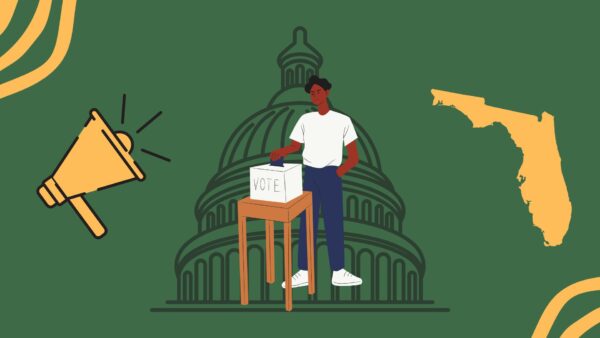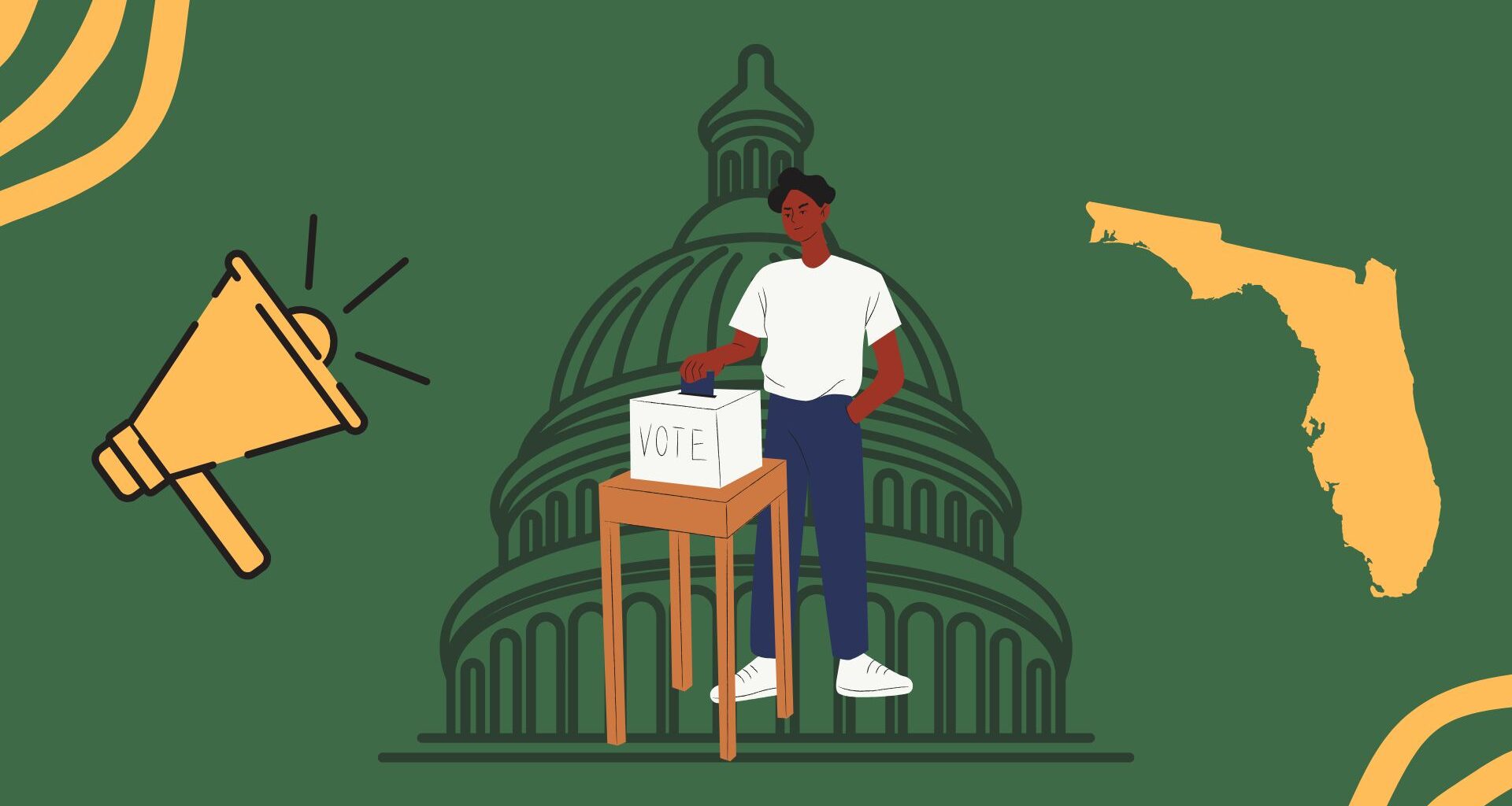 Who we elect in local elections can help or hinder student living, which is why it’s important to engage in local politics. ORACLE GRAPHIC/KEATON DUKE
Who we elect in local elections can help or hinder student living, which is why it’s important to engage in local politics. ORACLE GRAPHIC/KEATON DUKE
Between juggling classes, rent and exams, voting may not be students’ first priority. But voting in local elections is one of the most powerful ways college students can make change in their community.
When students think about voting, most of the time it’s about the presidential or midterm elections. While many vote in those elections, the ones that hit closest to home are local elections.
City councils, county boards and mayors shape students’ daily routines, as these positions can impact parking near campus, rent prices and public transportation.
The 2025 City of Tampa Special Municipal Runoff Election is underway. For this election, you can vote early from Oct. 23-26 or on Oct. 28, which is the election day.
The upcoming election determines who will fill the District 5 City Council seat, which became vacant after Councilwoman Gwendolyn Henderson died in June.
The first special election held in September did not produce a majority winner, so the top two candidates for the council seat – Naya Young and Thomas Scott – are participating in the runoff.
You can vote in person or drop off your vote-by-mail ballot at any early voting locations. For election day, you can vote in the polling place assigned to your precinct. You have to be registered to vote in Hillsborough County in order to vote.
This election matters because it will restore full representation on the City Council. The winner has the capability to shape decisions about housing, development and city services.
Related: USF’s presidential finalist outlines vision, goals during campus visit
Voting in local elections is crucial for college students. The city’s regulations on zoning, landlord regulations and neighborhood policing can directly affect living conditions.
For many students, college is the first time they are living independently. With this also comes “adulting,” such as paying bills, transportation and housing.
When college students vote, it allows elected officals to see them as an active part of the community and could be more inclined to listen to campus concerns.
Higher student turnout gives the university more visibility and influence in local and state decisions that can affect funding, housing and campus development.
Although voters aged 18-25 had a high turnout of over 95,000 in September, voters 66 and up exceeded that number at over 184,000, according to a Hillsborough County analysis.
If students don’t vote, local elections can be dominated by older people who may not prioritize student needs.
Related: OPINION: USF Student Government’s new voting bill takes power away from students
When students show up to the polls, city officials pay attention to their needs and wants.
USF can even help you register to vote with your school address.
The university provides resources such as precinct information, candidate profiles and where to vote in elections. It also provides information on the Supervisor of Elections office to help with the voting process.
Local elections may not be your top priority, but they ultimately shape the area around you.
If you can’t vote, it is important to still participate by researching the election and who might represent the area.

